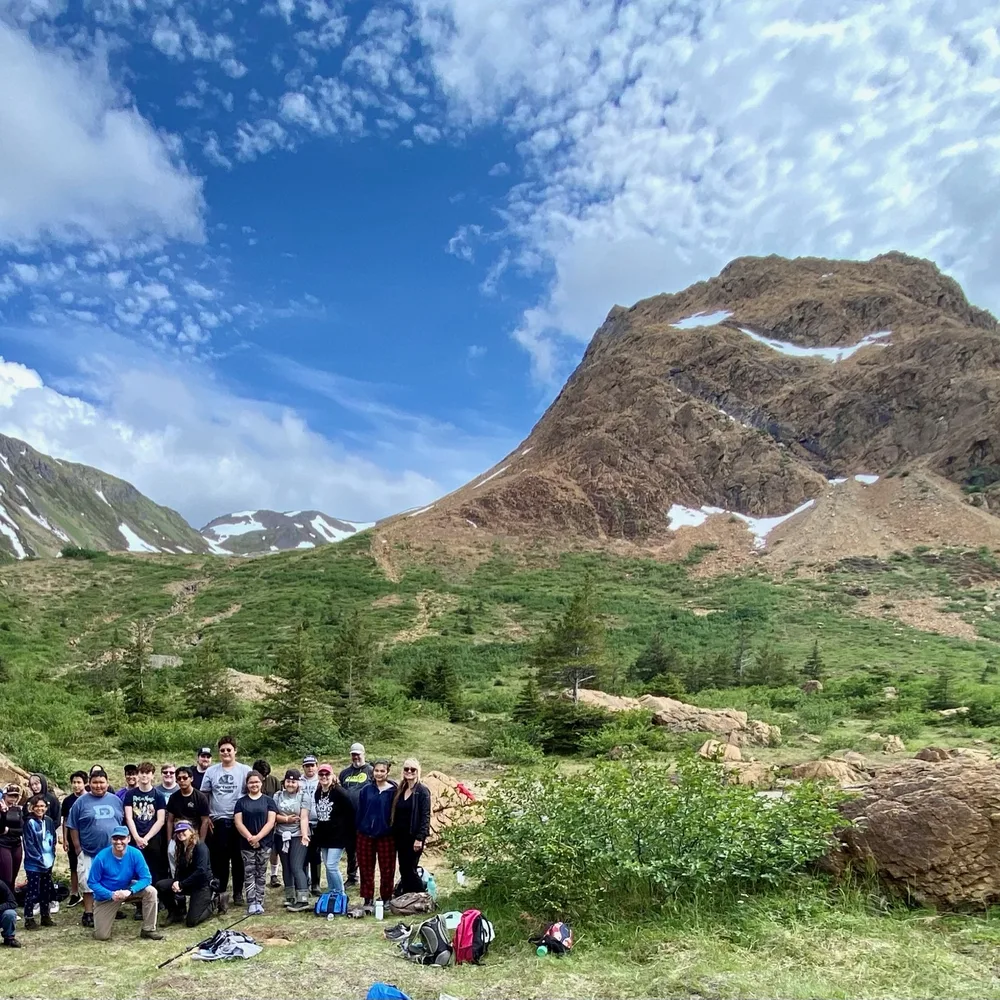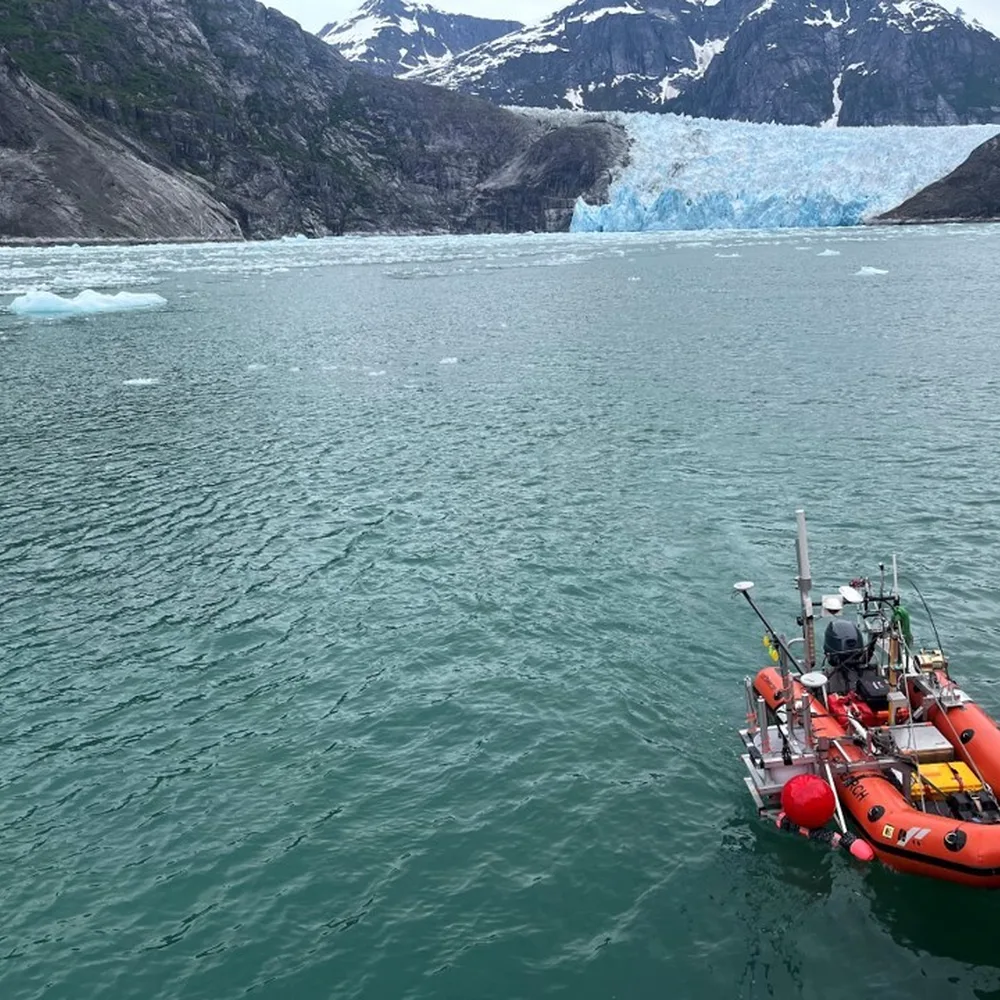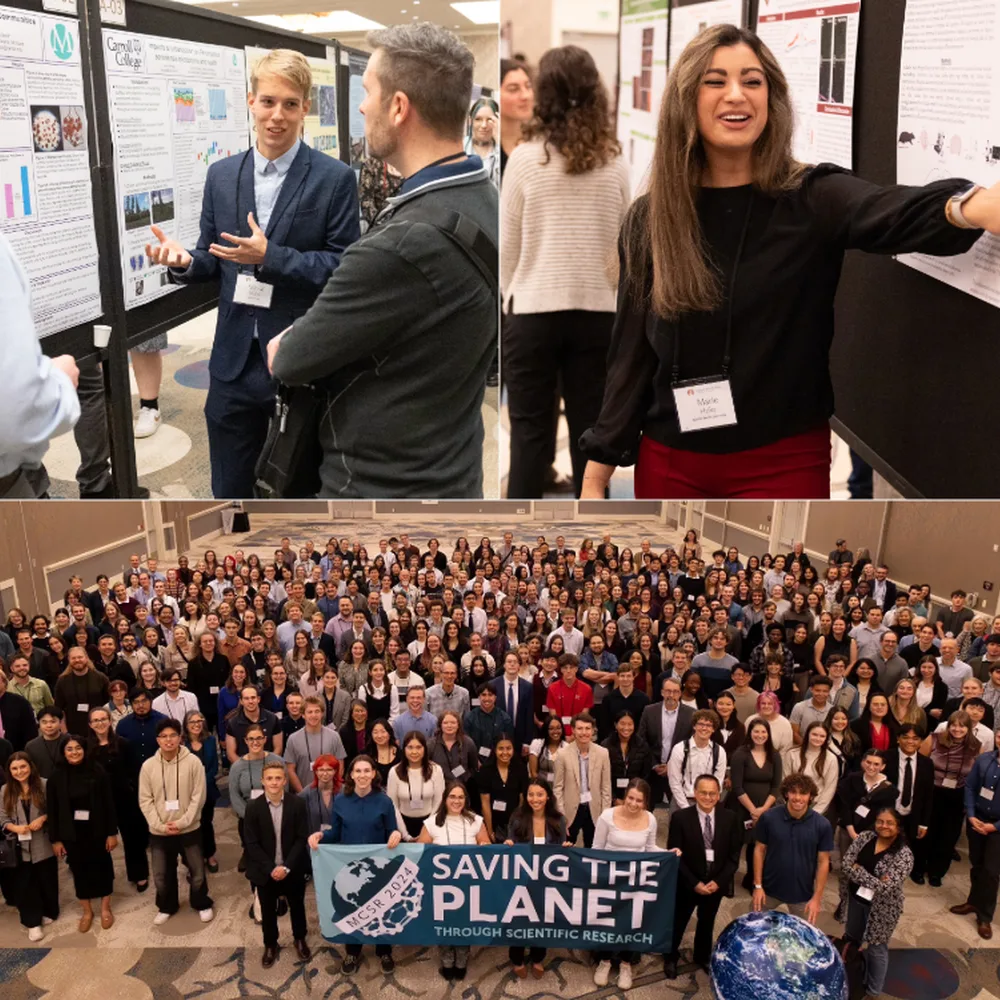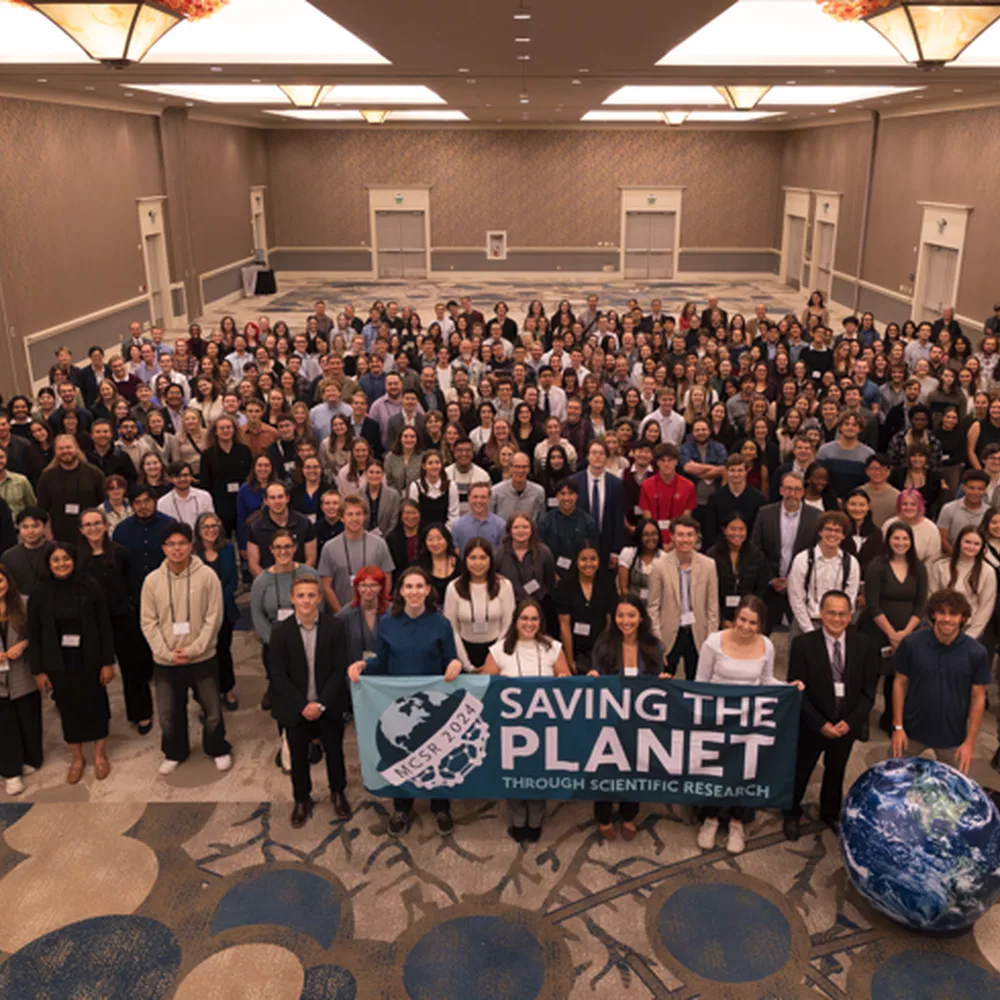2022 Lynwood W. Swanson Scientific Research Awards #
The M.J. Murdock Charitable Trust has announced the winners of its new annual scientific research awards at the 2022 MCSR Conference. The awards are open to invited nominations from private undergraduate institutions within the Pacific Northwest, encompassing Oregon, Washington, Idaho, Montana, and Alaska. The Swanson Award is intended to recognize a senior faculty exemplar with an established, productive, and nationally recognized research program, while the Swanson Promise Award is aimed at recognizing a junior faculty who has demonstrated an exceptional potential in establishing an exemplary, productive, and sustainable research program. The latter award is intended to honor a junior professor with less than 10 years experience as a faculty member.
A panel of national experts evaluates the nominations, and the criteria for these awards are focused on research accomplishments that include the following.
- Discovery research accomplishments with national recognition
- Substantial engagement of undergraduate students
- Recognized leadership in developing and promoting research at undergraduate institutions
- Evidence of continuing growth in productive research
The awards honor the longtime work of Dr. Lynwood Swanson, who retired after serving as a Trustee at the Murdock Trust for 30 years. Dr. Swanson began his career as a professor at Linfield College, before moving his research to Oregon Graduate Institute. In 1971, he co-founded FEI, a world-leader in electron optics and focused ion beam technologies in scanning and transmission electron microscopies.
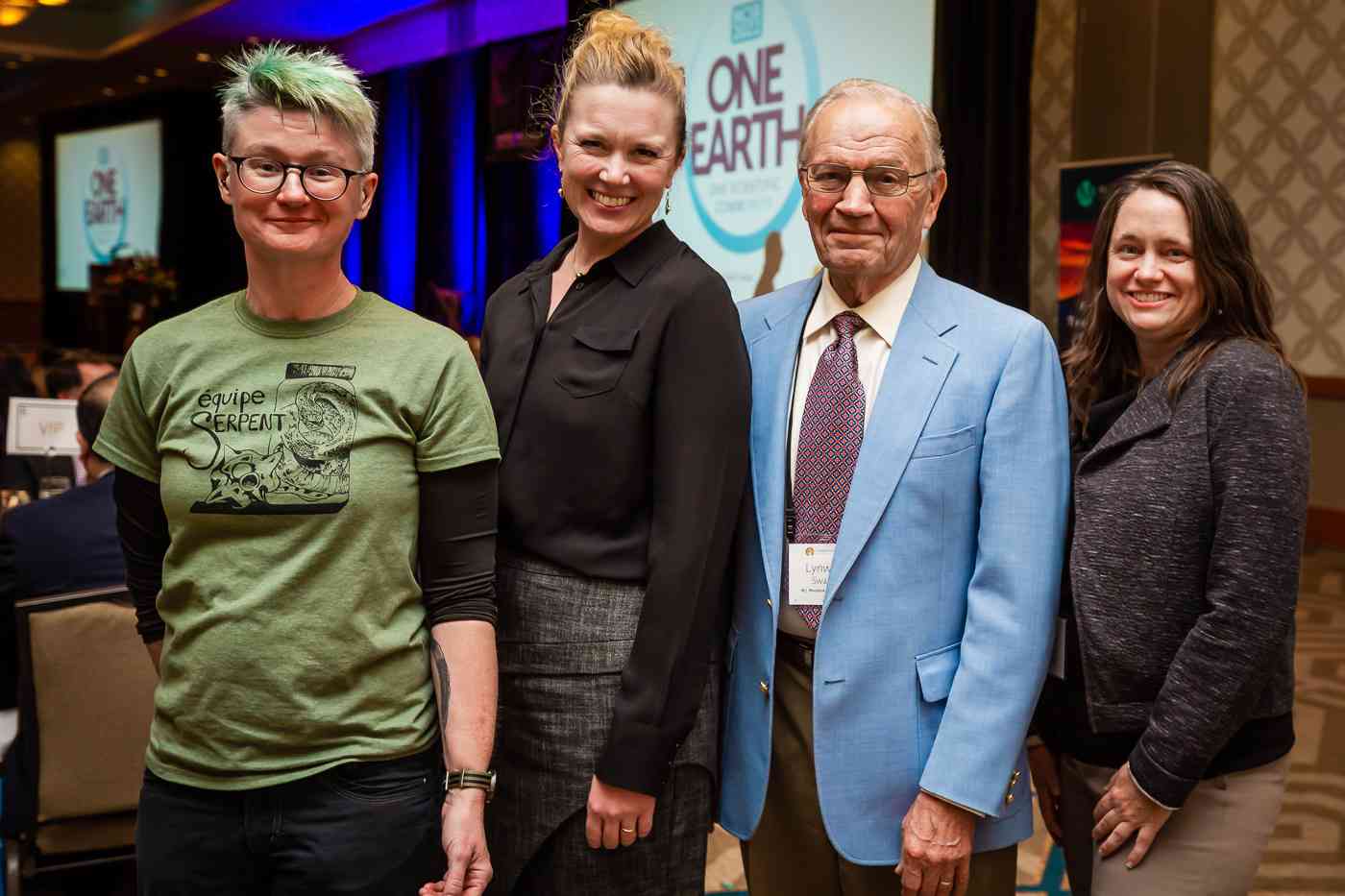
#
2022 Lynwood W. Swanson Scientific Research Awards #
This year, due to an outstanding group of candidates, two Lynwood W. Swanson Scientific Research Awards were named at the 2022 MCSR Conference.
One 2022 Lynwood W. Swanson Scientific Research Award was given to Dr. Cara Wall-Scheffler, Professor and Chair of Biology, Seattle Pacific University. Dr. Wall-Scheffler’s work uncoupling and re-coupling human locomotor evolution with reproductive fitness has received international recognition, and her mentorship of undergraduate student researchers from diverse backgrounds is unparalleled.
Learn more about Dr. Wall-Scheffler’s research in this video.
The second 2022 Lynwood W. Swanson Scientific Research Award was given to Dr. Kate Jackson, Professor of Biology, Whitman College. This award was given for her research advancing knowledge of snakes and snakebite in Africa, as well as her incredible mentorship of the next generation of scientists.
Learn more about Dr. Jackson’s research in this video.
2022 Lynwood W. Swanson Promise for Scientific Research Award #
The 2022 Lynwood W. Swanson Promise for Scientific Research Award was given to Dr. Margaret Metz, Associate Professor of Biology, Lewis and Clark College. In addition to her work inspiring students to appreciate and protect earth’s biodiversity, Dr. Metz is making important contributions to understanding forest dynamics and disturbances in a changing world.
Learn more about Dr. Metz’s research in this video.
2022 John Van Zytveld Oral Presentation Awards #
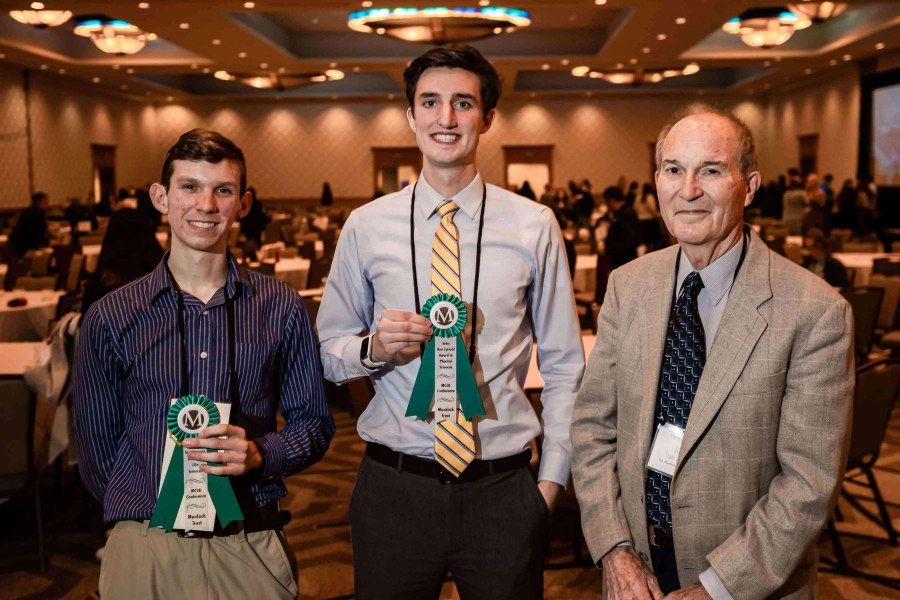
At each annual MCSR conference, students giving oral presentations compete for two awards: The John Van Zytveld Physical sciences Award and the John Van Zytveld Life Sciences Award. The awards consist of a ribbon, a cash prize for the students and their academic departments, as well as a gift for their faculty research advisors. The criteria used by judges of faculty and students in selecting the awardees are as follows:
- Knowledge of material (understanding the background, research question, hypothesis, data collection and analysis, and limitation of the research)
- Creativity of the project
- Effective communication (clarity – slides and verbal presentation; organization; pace; answering questions)
- Level of preparation
- Ability to keep me interested
These awards are made in recognition of Dr. John Van Zytveld, a longtime Senior Program Director at the Murdock Trust and a champion for undergraduate research and science education in the region.
Here are the award winners at the 2022 MCSR Conference:
2022 John Van Zytveld Award in the Physical Sciences #
Julian Marsh, Pacific Lutheran University, in collaboration with Dr. Ann J. Auman
“De Novo Protein Design of CD19 Binders for Immuno-Oncological Therapeutics”
2022 John Van Zytveld Award in the Life Sciences #
Jack Waite, Lewis and Clark College, in collaboration with Dr. Sharon Torigoe
“The Function of a Low-Affinity Transcription Factor Binding Site in Pluripotency-Specific Gene Expression”
Murdock Poster Prizes #
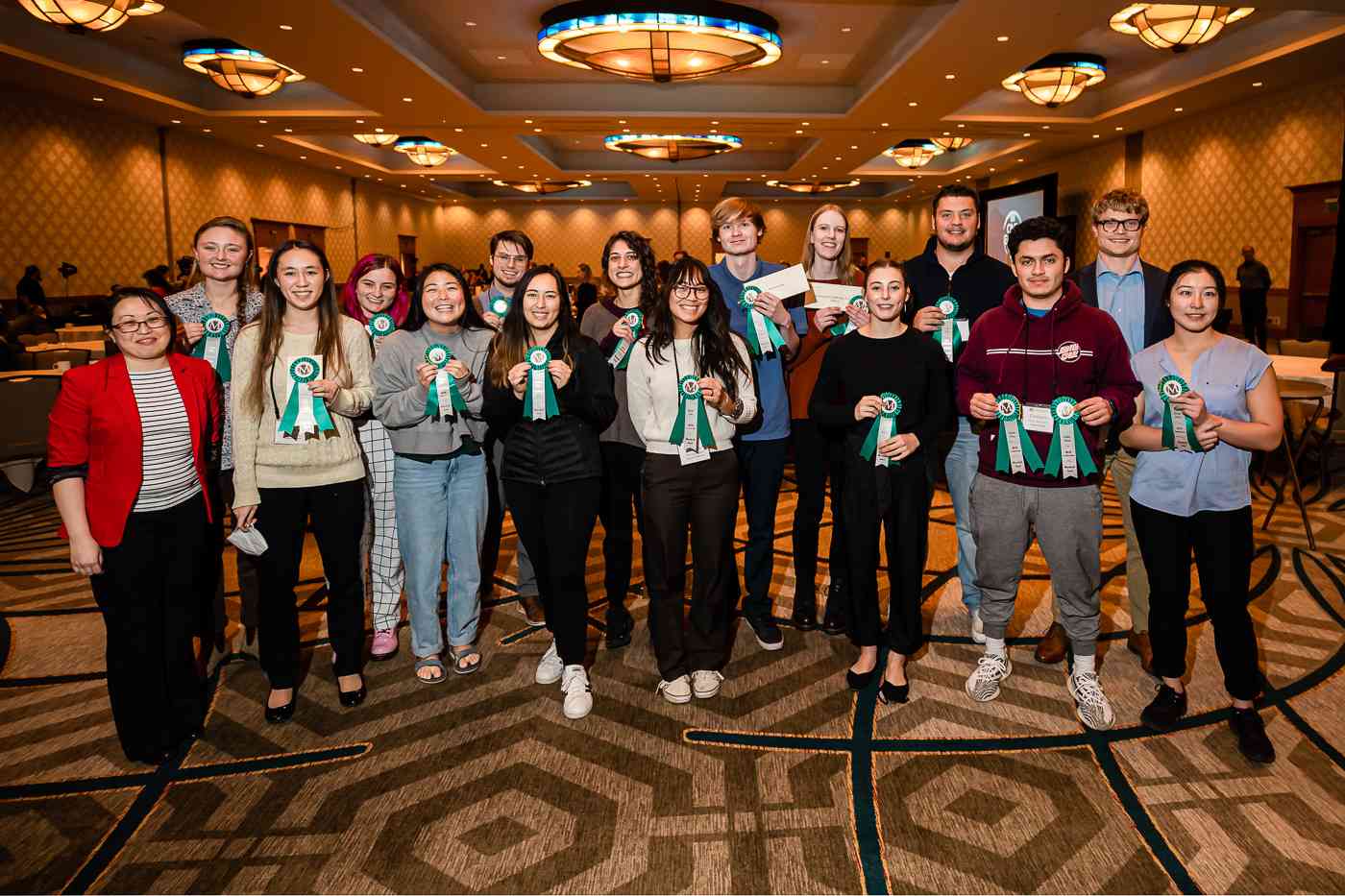
Students presenting their research in a poster format were also recognized at the 2022 MCSR Conference. One Murdock Poster Prize is presented to a poster in each research field, and it consists of a ribbon, a cash award, and a gift for the faculty research advisor. The criteria used by faculty judges in selecting the awardees are as follows:
- Graphics’ relevance and visual impact
- Spelling and grammar
- Informational content
- Presentation content and research outcomes
- Presentation delivery
- Answering questions
- Overall presentation
2022 Murdock College Science Research Poster Awards #
Here are the award winners from each category of the 2022 MCSR Conference.
2022 Murdock Poster Prize for Ecology-Evolution-Biodiversity (Section A, two prizes)
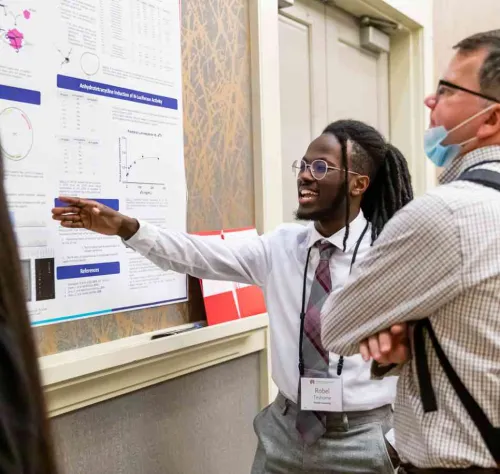
Name: Kylie Teng, Grace Chinen, and Emily Tacke
Institution: Seattle University
Mentor: Dr. Heidi Liere
“Importance of Vegetation, Ground Cover, and Landscape Quality on Beneficial Insects in Seattle Community Gardens”
Name: Sofia Reeves
Institution: Lewis and Clark College
Mentor: Dr. Greta Binford
“Why has PLD Activity Diversified in Sicariid Venoms? Functional Relevance of Venom Toxin Diversification”
2022 Murdock Poster Prize for Developmental Biology-Physiology (Section B)
Name: Priyanka Vinsel
Institution: University of Portland
Mentor: Dr. Laura Dyer
“Effects of Ethanol Exposure and the Sonic Hedgehog Signaling Pathway on Neural Crest Migration”
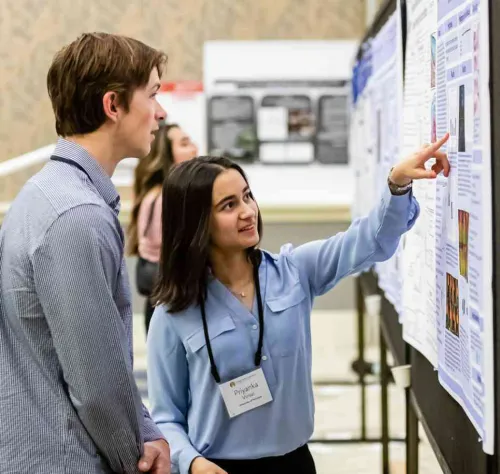
2022 Murdock Poster Prize for Molecular and Cell Biology (Section C, two prizes)
Name: Kristen Whitley
Institution: Walla Walla University
Mentor: Dr. Kyle Craig
“Targeting Mitochondrial Proteins as a Novel Approach for the Treatment of Neuroendocrine Prostate Cancer”
Name: Emiliano Soto-Romero, Braden Bell, and Chloe McQuesten
Institution: Gonzaga University
Mentor: Dr. Laura Diaz-Martinez
“Studying Three Universal Essential Genes with Potential Functions in Cell Viability, the Cell Cycle and the Response to DNA Damage”
2022 Murdock Poster Prize for Neuroscience-Psychology-Exercise Science (Section D)
Name: Michelle Ortman
Institution: George Fox University
Mentor: Dr. Melanie Samuel (Baylor University College of Medicine)
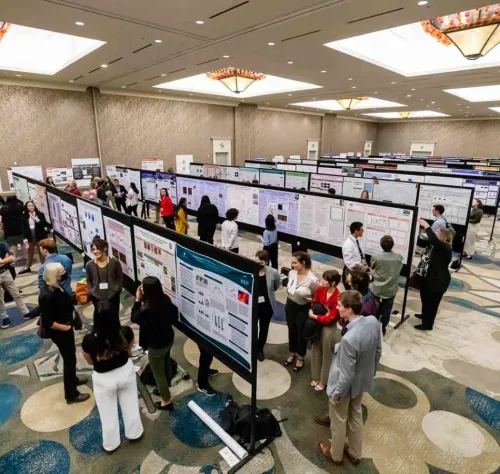
“The Serine/Threonine Kinase LKB1 is Required for Retinal Ganglion Cell Migration and Viability”
2022 Murdock Poster Prize for Biochemistry (Section E)
Name: Paxton Carson
Institution: Gonzaga University
Mentor: Dr. Shannen L. Cravens
“Investigating the Effects of Uracil Damage on the Therapeutic Potential of DNAzymes “
2022 Murdock Poster Prize for Organic Chemistry (Section F)
Name: Hayden Ledvina
Institution: George Fox University
Mentor: Dr. Summer Gibbs (Oregon Health and Science University)
“Synthesis of Prostate Cancer Specific Targeting Agents for Fluorescent Guided Prostatectomy”
2022 Murdock Poster Prize for Analytical-Inorganic-Physical Chemistry-Computational Chemistry (Section G, two prizes)
Name: Emma Morrow
Institution: University of Portland
Mentor: Dr. Buck Taylor
“Computational Study of the Decomposition of NHC and CAAC Ruthenium Catalysts in Ethenolysis Reactions”
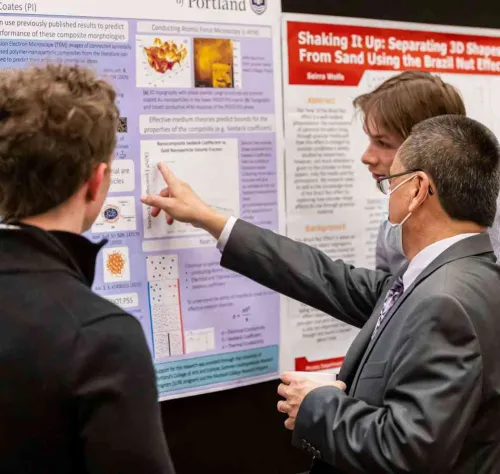
Name: Kalena Montgomery
Institution: University of Puget Sound
Mentor: Dr. Emily Tollefson
“Progress Towards a Lithium Selective Nano-Sensor”
2022 Murdock Poster Prize for Environmental Science-Geology (Section H)
Name: Namy Barnett
Institution: Whitman College
Mentor: Dr. Kirsten Nicolaysen
“Green Beachers, Greener Earth: Coastal Enhanced Weathering”
2022 Murdock Poster Prize for Microbiology (Section I)
Name: Nhu Phan and Conor Barres
Institution: Pacific University
Mentor: Dr. Gyorgyi Nyerges
“Detection of Antibiotic Resistance Genes in Fernhill Wetlands and Wastewater Treatment Plant”
2022 Murdock Poster Prize for Physics and Engineering (Section J)
Name: Gabriel Kuntz
Institution: Seattle University
Mentor: Dr. Pasha Tabatabai
“Mechanical Properties of Fish Shoals”
2022 Neal Thorpe Memorial Lecture #
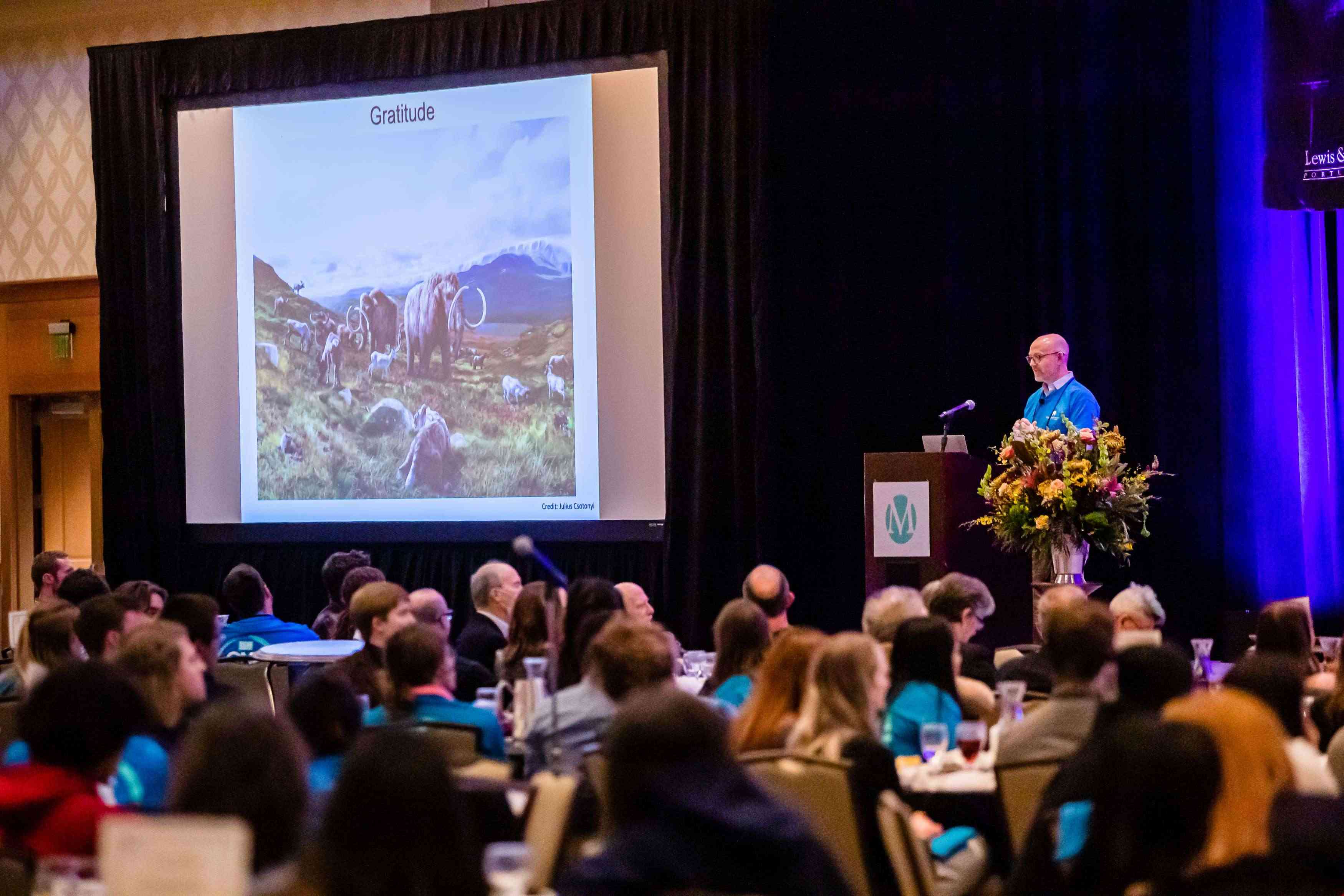
Dr. Matthew Wooller, PhD
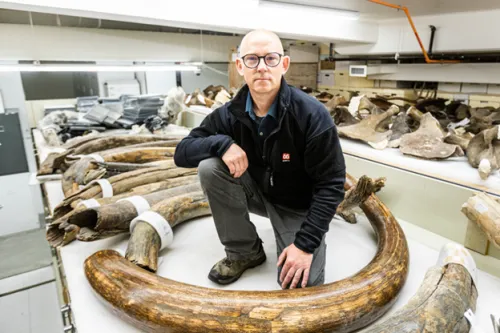
Director, Alaska Stable Isotope Facility; Water and Environmental Research Center, Institute of Northern Engineering, University of Alaska Fairbanks
Professor, jointly appointed by the Department of Marine Biology, College of Fisheries and Ocean Sciences and the Water and Environmental Research Center, University of Alaska Fairbanks
Title: “Let’s Take a Walk with – and Perhaps Even ‘Adopt’ – a Woolly Mammoth”
Biographical Sketch
Mat Wooller is an ecologist who specializes in isotopic analyses of modern and past organisms, including the tusks and bones of mammoths. His studies of modern organisms have ranged widely to include analyses of whales, seals, bison, salmon and humans. He is a Professor at the University of Alaska Fairbanks, where for about 20 years he has directed the Alaska Stable Isotope Facility, which includes state-of-the-art instrumentation funded by the Murdock Charitable Trust. Primarily focusing on the Arctic, Mat has used cutting edge isotopic techniques to reconstruct past climates, ecosystems and the diets of some of the earliest people in Alaska. His lab’s isotopic analyses of a mammoth tusk were used to provide an unprecedent and detailed perspective on the movement ecology of a male, adult mammoth that was alive in Alaska at the height of the last ice age. Mat is also the founder and lead of the “Adopt a Mammoth” project that is coupling crowd-sourcing, radiocarbon dating and ancient DNA techniques to study the University of Alaska Museum of the North’s large collection of mammoth fossils in a hunt for the most recent mammoth that existed in mainland Alaska. Most recently Mat has joined the Scientific Advisory Board of “Colossal”, a company combining the science of genetics with the business of discovery to de-extinct woolly mammoths. As an open and collaborative paleo-ecological researcher, Mat integrates isotope techniques amongst a wide range of other approaches for studying the past, including his newly found interest in paleo-proteomics. By studying past and present ecosystems Mat hopes to help make better predications about future ecological outcomes resulting from environmental changes. Mat’s passion for research is matched by a strong commitment to promoting the well-being of students, staff, and faculty on campus. To this end Mat founded ‘the Well’ a physical and on-line space on the UAF campus devoted to promoting happiness and wellbeing. He also developed a for-credit, on-line class on the “Science and Practice of Happiness and Wellbeing” that was available throughout the Covid pandemic.

